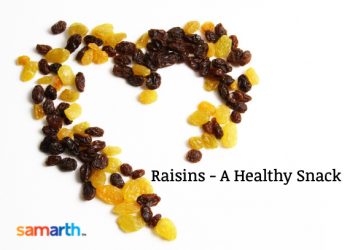Indian festivals are as unique as they come. During Navaratri, people follow a fasting diet and then follow it up with a festive feasting diet! This year, the Shardiya Navaratri will begin on 15th October and end on 24th October. For most people, this fasting is not the strict fasting where you give up on solid food. It is just a case of avoiding certain foods, which, in a way, is a detoxification for the body. In many ways, Navaratri fasting can be looked at as an intermittent fasting period that can be beneficial, provided you keep a tab on what you eat and drink.
Planning your meals during this season is important mainly for people with diabetes, blood pressure, kidney and heart issues. The changed diet has implications for your health, especially if you are on regular medications. Hence, in either case, it is always advisable to discuss your fasting diet with your doctor once to ensure you are safe and healthy through the festive season.

Join Now >
What to eat and how?
The options to eat are many. Include fibre-rich flours like Buckwheat (Kuttu Ka Atta), and Water Chestnut (Singhare Ka Atta). Also include millet varieties, such as Samak Chawal, Barnyard Millet (Swang Chawal), etc. Make rotis, Chillas, Dhoklas, etc., using these flours. Use millets to make Pulao, Idlis and Dosas. They are low in glycaemic index but high in energy. Include Milk, Curd, Cheese (Paneer), etc., for maintaining protein intake. Fibre-rich fruits and veggies such as Papaya, Guava, Orange, Yam (Suran), Arbi, etc. are good options. You may also explore roasted Makhana, Bhel Puri, Nuts and Seeds, etc., to munch upon between meals.
Hydrate yourself throughout the day with water, fruit juices, coconut water, buttermilk, lemon juice, and watery fruits and veggies such as Cucumber and Watermelon.
Pay special attention to the cooking method. Use less oil, find steamed or boiled cooking options instead of frying, or make Khichdis. Eat light and in periodic intervals to sustain your hunger and energy.
What to avoid?
Typically, during Navaratri fasting, people eat potatoes to make up for not eating other regular meals. Overeating potatoes can be harmful, especially for people with diabetes. Eating more potatoes continuously for nine days can increase your blood sugar levels. Hence, it is best to avoid it. Instead, opt for sweet potatoes, it not only is a healthy substitute for potato, but also has many other health benefits. Also mix them up with other ingredients like curd and salads to balance the meal.
Avoid eating sweets, as this is when Kheer, Ladoos and Halwas also abound. If at all, try to eat Chikki, Rajgira Ladoo, Samak Chawal Kheer, Lauki Halwa, etc. Avoid or reduce sugar and use jaggery instead. These variations can reduce the harmful impact of eating sweets. Another thing to avoid eating during Navaratri is fried foods. Pakoras, pooris, chips, namkeen, etc., can also affect blood pressure and sugar levels.
Also, it is essential to keep taking your regular medications and not skip them to adjust to your changed diet.
What to watch out for?
While it’s okay to fast with care, you must immediately stop the fasting and seek medical help if you experience dizziness, disorientation or body tremors. Dehydration can cause electrolyte imbalances. Fasting can also cause gastric issues, which you should watch out for and reduce caffeine intake. You may also experience sleep issues due to changes in diet. Eat an early dinner and allow your stomach to settle down before bedtime.
Navaratri fasting offers a unique blend of detoxification and intermittent fasting, but it’s crucial to plan your meals carefully, especially if you have health conditions. Prioritize fiber-rich foods, hydration, and mindful cooking methods while avoiding excessive potatoes, sweets, and fried foods. Additionally, incorporating regular, gentle exercise into your routine during this time can further support your overall health and well-being. We wish you a Happy Navratri with safe fasting. Enjoy the festive season in peace with your loved ones.










